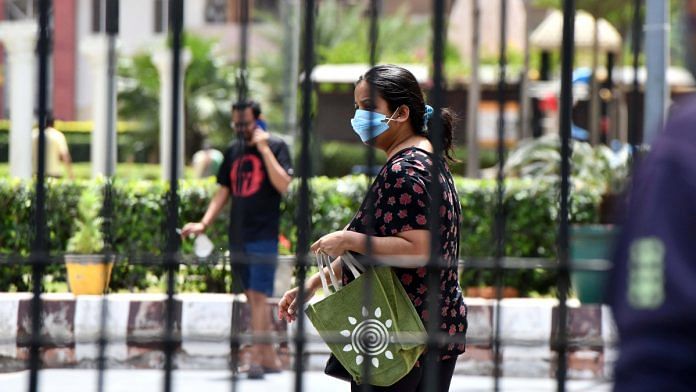With partial relaxation of the lockdown, many of us are going back to office. But there are new rules for domestic workers. It isn’t so easy for them to return to their workplaces.
The fears of Indian middle class about their safety are now conflicting with their desperate dependence on domestic workers.
The lockdown did one thing — it made domestic workers visible. But the guarded lifting of restrictions in some cities can make them invisible again. Each residents’ welfare association (RWA) is drawing up new rules for workers’ re-entry into their homes.
These are the perils of working in an unorganised sector in India.
Also Read: In coronavirus crisis, are RWAs helping or becoming vigilantes?
Rules of RWA
As the government extended the lockdown on 1 May with some relaxation, domestic workers hoped they would be able to seamlessly go back to work like before. The Instagram romanticisation of household chores by the middle class had begun to wear thin and they longed to have their ‘didi’ back. Then entered the rule-makers — the RWAs.
In the home ministry’s guidelines, it was indicated that the services of self-employed workers are permitted barring the containment zones. In state-specific guidelines, the Delhi government also allowed it. There is no mention of the role of RWAs in the guidelines.
Some RWAs are not allowing domestic workers to enter the housing society. Some are allowing only those from the green zone to enter. Others have forbidden the domestic workers from using the building lifts. In Bengaluru, some residents who want their domestic workers back are also being asked by the RWAs to sign a safety form. In some cases, the domestic workers aren’t allowed in unless they have downloaded Aarogya Setu app on their phone. But not all of them have a smartphone, especially the female domestic workers.
Also Read: RWAs acting like the first line of defence against coronavirus. They are Modi’s soldiers
Domestic work after Covid
The most debilitating rule enforced by some RWAs is to allow only those domestic workers who are working in one home, not in multiple homes. This will financially crush a lot of workers who do part-time work in five to six homes every day.
Now the question is — who gave RWAs the authority to decide the fate of the domestic workers and their employment opportunities? Technically, no one did. It is these workers who have to bear the brunt of their doubts and lack of clarity over the guidelines. The perception that all these workers are the potential carriers of the virus — and not the upper middle class who helped bring the virus into India — is visibly classist.
Labour laws anyway don’t cover domestic workers, most of whom work in harsh conditions with minimum wages and no job security.
Many of these workers are also migrants, who didn’t go back to their villages or probably did not have a choice. Or maybe they now regard themselves as the permanent residents of the cities. It indicates that working in the cities could be the only employment option available for them. It needs to be acknowledged that their livelihood depends on us.
The post-Covid era is going to bring new challenges for everyone. But even more so for the self-employed, unorganised sector workers. There just might be a new social contract between domestic workers and their employers now. We will have to watch if it will it be less unjust than before. It is also time to acknowledge the risk they take by coming into our homes. The need for health insurance policies for domestic workers is long overdue.
The paranoia displayed by RWA in the post-lockdown context may appear to be giving less negotiating room for the workers. But the visibility that this workforce gained during the lockdown is also a window of opportunity for them to negotiate a better deal for themselves.
Views are personal.



